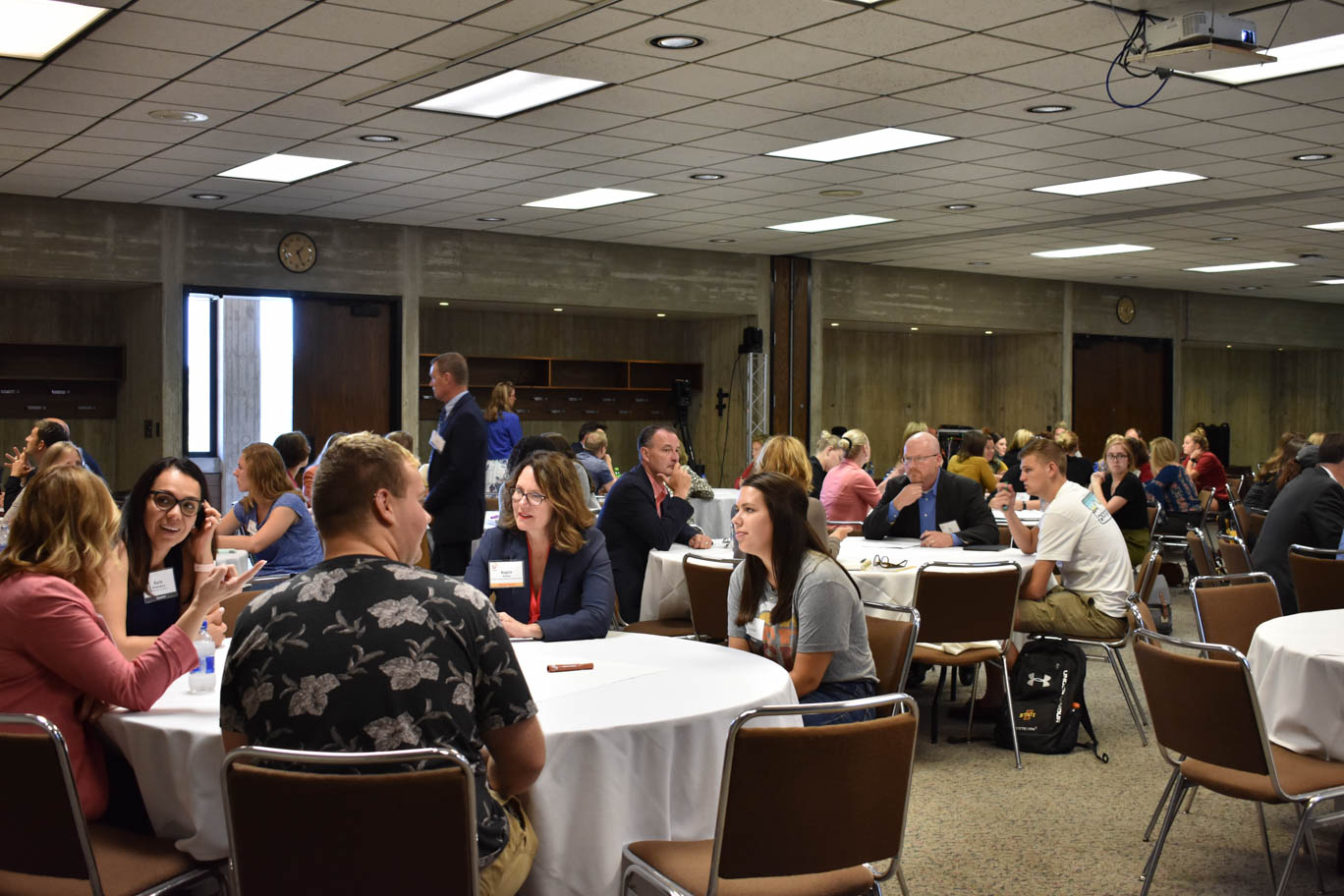
The workplace is the best place to have civil discussions
More than 200 business professionals, journalists, faculty and students attended the 2019 Greenlee Summit: Communications and Civility in Our Democracy, Sept. 6 at Iowa State University in Ames, Iowa. Speakers, panels and moderated discussions addressed how civil discourse can be fostered in society and how individuals can contribute to and promote productive dialogue. Some of the Summit conclusions were surprising.
One conclusion from keynote speaker Leslie Gaines-Ross, Chief Reputation Strategist at Weber Shandwick: Our workplaces are the best and safest places for individuals to experience civil discussions in today’s political environment.
“America was founded on freedom of speech and freedom of the press,” said Michael Dahlstrom, interim director of the Greenlee School of Journalism and Communication at Iowa State University. “For many students, college is a time to see these freedoms in action and learn how to respond to points of view that may be different than their own. In Greenlee classes, we’re committed to modeling the principles of civility and civil discourse because our journalism, advertising and public relations students will carry these lessons with them as professionals in the workplace and also as the next stewards of mass communications and social media interactions.”
One conclusion that resonated throughout the Greenlee Summit was that a controlled work environment can help foster civil and rational discussion.
Two key reasons brought out at the sessions at the Iowa State University campus seem simple enough.
-
Employers have rules about hostile discussions and discrimination. Employees understand that raising their voice, calling names or other uncivil behavior could cost them their jobs. “Conflict can hit a person directly in the pocketbook because incivility comes with repercussions in the workplace,” Dahlstrom said.
- Employees have a common bond and goals at work. “Spending the majority of our waking hours with co-workers forces us to know why associates have certain opinions,” Dahlstrom said. “Our speaker experts seem to agree that the better you know someone and their beliefs, the more you’ll understand why they have their point of view.”
Social media received much of the blame for civil discourse because, believe it or not, people aren’t as social today. “It’s too easy to send an anonymous message, watch and yell at a reporter or politician. Many individuals are at home alone fretting rather than actively engaging with others about the issue,” Dahlstrom said.
So, what’s the bottom line? If someone upsets you or disagrees with your views, try this. “Ask the person you disagree with to explain how they came to their opinion, why they believe what they do. It’s easier to understand why someone has a different opinion than you if you learn what their opinion is based on. Perhaps it’s an experience or incident that has impacted them,” Dahlstrom said. “This doesn’t mean you have to agree with everything they say. However, listening and understanding why someone thinks a certain way will promote civility.”
Everyone agrees it’s important to work on listening and understanding. And, media and communications professionals attending the Greenlee Summit said they are committed to doing what they can in their respective professions to help increase civility and civil discourse. Some of the solutions coming out of the Greenlee Summit included:
- invite diverse opinions.
- don’t jump to conclusions; instead, form a good understanding of others’ experiences.
- find common ground between both sides of a topic to avoid extremes and sensationalism.
- know the impact and consequences of uncivil environments and actions on everyone.
To see more ideas for promoting civility and civil discourse, see the 2019 Greenlee Summit report-out.
About the Greenlee School of Journalism and Communication and the 2019 Summit:
The 2019 Greenlee Summit focused on Communications and Civility in Our Democracy. This was the second Greenlee Summit hosted by Iowa State University and the Greenlee School of Journalism and Communication. The annual event brings together notable professionals, thought leaders and top educators from across the country to share fresh perspectives on trends that influence today’s communication and shape the future of journalism, advertising and public relations.
The Iowa State University Greenlee School of Journalism and Communication is one of the longest continuously accredited journalism and communication schools in the nation, with award-winning faculty and distinguished alumni who are foremost authorities in their fields. Because Greenlee is recognized for setting standards in education and accreditation, it was the ideal host for such an important conference on the state and future of our industry. The Iowa State University Department of Political Science was a collaborator on this year’s event.
For more information on the 2019 Greenlee Summit, visit https://alumni.greenlee.iastate.edu/2019-summit/.
CONTACT:
Maria Charbonneaux, Communications Specialist, 515-294-0491, mvcharb@iastate.edu